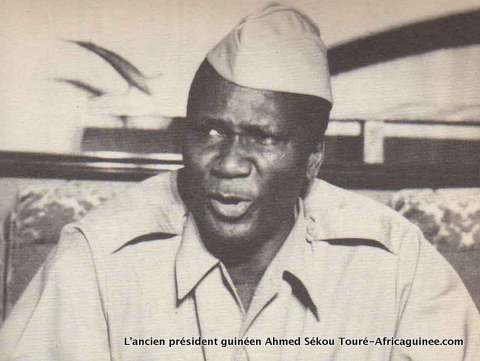Toure, Sekou
ca. 1922–1984
First president of Guinea
Aleader of the INDEPENDENCE MOVEMENT in GUINEA, Sekou Toure became the first president of the newly independent Republic of Guinea in 1958. Born to a modest Muslim family in upper Guinea, Toure had little education. However, he had natural talent as a speaker and leader and he acquired some Islamic learning. After practicing a variety of trades, Toure took a job with the colonial postal administration. He soon also became a trade union leader and politician. In 1947 he helped found the Democratic Assembly of Africa, and he later served as the secretary-general of the local branch of that political party. He was a strong supporter of pan-Africanism—a movement that encouraged the development of black identity and sought to unify blacks in Africa and around the world.

In his role as a union leader and politician during the 1940s and 1950s Toure organized many labor strikes and spoke out often against colonialism. He denounced African chiefs who served as colonial administrators and appealed to people on the margins of society, such as slaves, youth, and women. Toure also established the General Union of North African Workers. His political influence increased throughout the 1950s as he was elected to the territorial assembly of Guinea, became mayor of the capital city of CONAKRY, and served as a representative to the French National Assembly.
When France allowed its African colonies to vote on the issue of independence in 1958, Toure spoke out in favor of immediate independence for Guinea, making the famous statment, “We prefer poverty in freedom to [riches] in slavery.” The people of Guinea voted overwhelmingly for that idea, and Guinea became the first French colony in sub-Saharan Africa to achieve independence. Toure became the first president of the new republic.
After Guinea's independence France withdrew much of its support. Facing an economic crisis and finding little help from Western nations, Toure turned to the Soviet Union and other communist countries for help. Under communist influence, he formed a one-party state, abolished civil rights, and nationalized industry. As Guineans grew more and more opposed to his radical policies, Toure tightened police security and killed or imprisoned tens of thousands of people. More than one million Guineans fled the country. Beginning in the late 1970s, Toure began to reform the nation's economy and undo various communist policies, a trend that continued after his death in 1984.